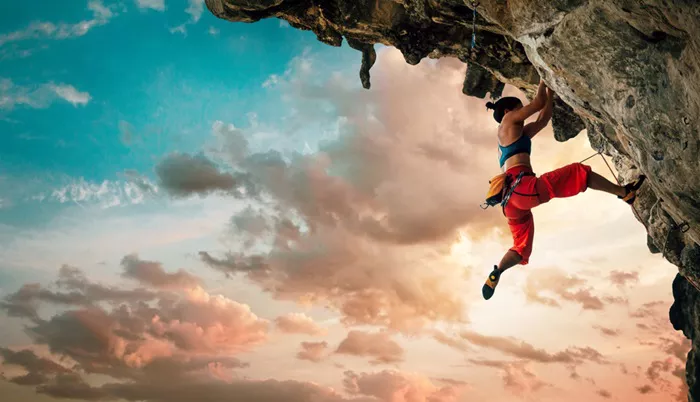Rock climbing is an exhilarating sport that combines physical strength, mental fortitude, and technical skill. As an extreme sports challenge enthusiast, understanding the time required to master rock climbing skills is crucial for both safety and performance. Mastery in rock climbing is not merely about reaching the top of a wall; it encompasses a wide range of abilities, including technique, strength, mental resilience, and safety awareness. This article explores the journey to mastering rock climbing, detailing the skills needed, the time commitment involved, and tips for effective learning.
Understanding Rock Climbing Skills
To master rock climbing, climbers must develop three fundamental skill sets: technique, physical fitness, and mental strength. Each of these components plays a vital role in a climber’s overall performance.
Technique
Climbing technique involves efficient movement on the rock face. This includes footwork, body positioning, and the ability to read routes effectively. Good technique allows climbers to conserve energy and reduce the risk of injury. Many beginners overlook this aspect, focusing primarily on strength instead of learning how to move efficiently.
Physical Fitness
Physical fitness in climbing is primarily about strength, endurance, flexibility, and balance. Climbers need strong upper body muscles for pulling themselves up and core muscles for maintaining stability.
Additionally, grip strength is crucial for holding onto various types of holds. A well-rounded fitness regimen that includes strength training and cardiovascular exercises can significantly enhance climbing performance.
Mental Strength
Mental resilience is perhaps the most overlooked aspect of climbing. Climbers often face fear and anxiety when scaling heights or attempting challenging routes. Developing mental strength involves learning to manage fear, maintain focus under pressure, and make quick decisions while climbing. Techniques such as visualization and mindfulness can help climbers improve their mental game.
Time Commitment to Master Rock Climbing Skills
The time required to master rock climbing varies widely among individuals based on several factors:
Starting Fitness Level: Beginners with a background in sports may progress faster than those who are starting from scratch.
Frequency of Practice: Regular practice accelerates skill acquisition. Climbers who train multiple times a week will see improvements more quickly.
Quality of Instruction: Learning from experienced instructors can significantly shorten the learning curve.
Personal Goals: The time commitment will also depend on whether one aims to climb recreationally or competitively.
see also: What Is an Ergometer in Rock Climbing?
General Timeline for Skill Development
Beginner Stage (0-6 months):
Focus: Learning basic techniques, safety protocols, and equipment usage.
Time Commitment: 2-3 sessions per week.
Expected Progress: Climbers typically start with indoor bouldering or top-rope climbing at V0-V1 levels (beginner grades).
Intermediate Stage (6 months – 2 years):
Focus: Building strength, refining technique, and starting to lead climb.
Time Commitment: 3-4 sessions per week.
Expected Progress: Climbers may reach V2-V4 levels in bouldering or 5.8-5.10 in sport climbing.
Advanced Stage (2-5 years):
Focus: Mastering advanced techniques, improving mental resilience, and tackling more difficult climbs.
Time Commitment: 4-5 sessions per week plus additional strength training.
Expected Progress: Climbers can achieve V5-V7 levels in bouldering or 5.11-5.12 in sport climbing.
Expert Stage (5+ years):
Focus: Specializing in specific types of climbing (e.g., trad, sport) and participating in competitions.
Time Commitment: 5+ sessions per week with targeted training regimens.
Expected Progress: Climbers may reach V8+ or 5.13+ levels depending on their dedication.
Training Programs
Many climbers benefit from structured training programs that include skill assessment and progression tracking. For example:
Climbing Courses: Introductory courses typically last around 3 hours for beginners but can extend into multi-day workshops for advanced techniques.
Instructor Training: Becoming a certified instructor requires leading numerous climbs over an extended period—often taking more than a year from training to assessment.
Tips for Effective Learning
Consistency is Key: Regular practice helps reinforce skills and build muscle memory.
Focus on Technique First: Prioritize learning proper techniques before increasing difficulty or intensity.
Cross-Train for Strength: Engage in supplementary exercises like weightlifting or yoga to enhance overall fitness.
Seek Professional Guidance: Consider hiring a coach or attending workshops to receive personalized feedback.
Set Realistic Goals: Break down your climbing goals into manageable milestones to maintain motivation.
Safety Considerations
Safety is paramount in rock climbing. As climbers progress through different skill levels, they must be aware of:
Proper use of gear (harnesses, ropes, carabiners).
Understanding belaying techniques and responsibilities.
Recognizing environmental hazards (weather conditions, rock quality).
Regular training on safety protocols should be integrated into every practice session.
Conclusion
Mastering rock climbing is a rewarding journey that requires dedication, patience, and a willingness to learn from both successes and failures. While the timeline for achieving mastery can vary greatly among individuals—ranging from a few months to several years—the key lies in consistent practice and continual improvement across all skill sets involved in the sport.
By focusing on technique first, maintaining physical fitness through cross-training, and developing mental resilience through experience and training, climbers can enjoy the process while safely pushing their limits in this exhilarating sport.
Related topics:
- What Is Bouldering in Rock Climbing?
- What Is Rappelling in Rock Climbing?
- What Is a Buttress in Rock Climbing?

